Why Hyundai hybrids should have Toyota worried
The green dominance of Australia’s best-selling automotive brand could be rocked by impressive new options from rival manufacturers.
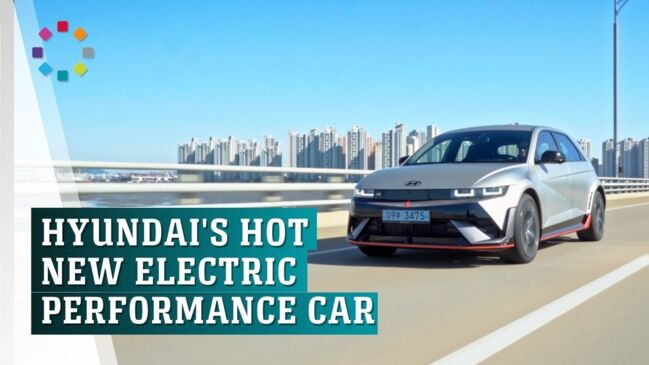
Hyundai is mounting a challenge to Toyota’s hybrid vehicle dominance, accepting many Australians want cheaper fuel-efficient hybrids rather than full electric cars.
The Korean brand has just launched a hybrid version of its updated-for-2024 i30 Sedan small car. It boasts claimed 3.9L/100km fuel use – exactly the same as its four-door Toyota Corolla hybrid rival.
Hyundai’s i30 hybrid sedan is $35,990 drive-away, which is cheaper on the road than the entry-level Toyota Corolla Ascent Sport hybrid in some states.
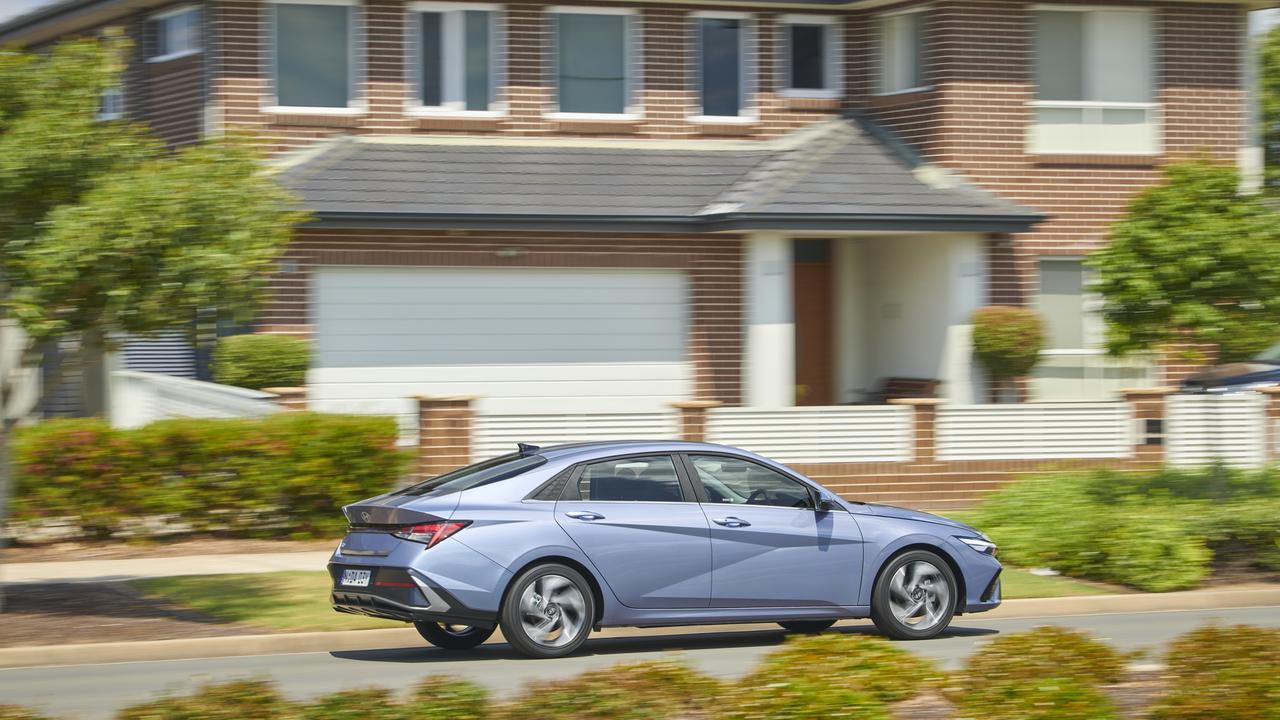
“There’s a strong appetite for hybrid and we’re responding,” said Hyundai Australia product planning and development manager Tim Rodgers.
“When we look to our other hybrids, we see the conquest opportunity the powertrain brings is very strong.”
Toyota’s the key target.
Aussie buyers have swarmed to its hybrids.
The Japanese giant delivered over 72,000 hybrid-electric vehicles (HEVs) in 2023, making up more than one-third of its total number of cars sold.
Hyundai wants a bigger slice of the action: Toyota accounted for 73 per cent of all HEVs sold in Australia last year.
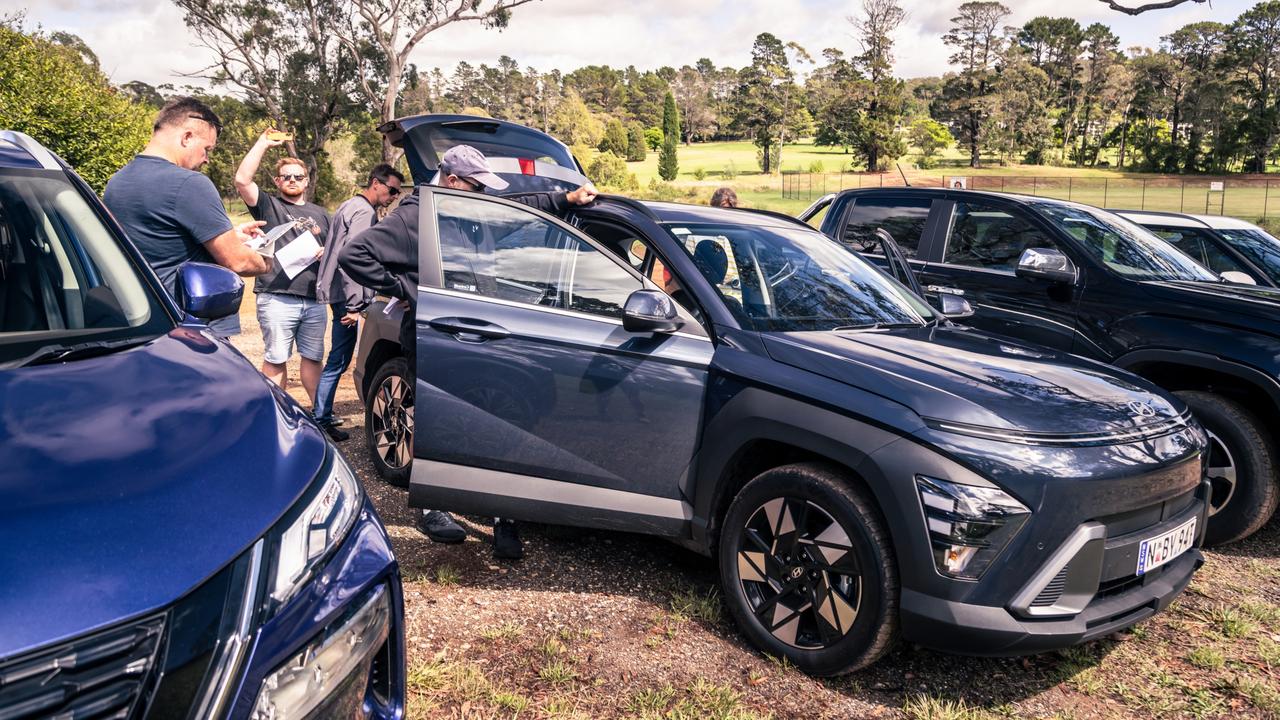
Hyundai already sells hybrid versions of its Kona and Santa Fe SUVs, while the brand’s best-selling model – the Tucson medium SUV – gains a hybrid variant later this year.
Sadly, there’s no word on a HEV version of its popular i30 hatchback. Australia will receive European-built i30 hatches from the middle of 2024, but only as less fuel-efficient mild hybrids.
Hyundai’s hybrid portfolio boost is timely. Earlier this month the Federal Government proposed stricter emissions standards for new vehicles, likely to come into effect in 2025.
The New Vehicle Efficiency Standard (NVES) would see brands penalised if the average emissions of all the vehicles they import don’t meet stricter CO2-emitting targets. Car makers will have to sell more low- or zero-emissions vehicles like hybrids and EVs.
“HEV is not our leading technology, but it’s certainly an opportunity for us to transition out of petrol,” said Hyundai Australia chief operating officer John Kett. “The more weighting you put towards your EVs allows you to extend the life cycle of your ICE (petrol and diesel) and hybrid vehicles.”
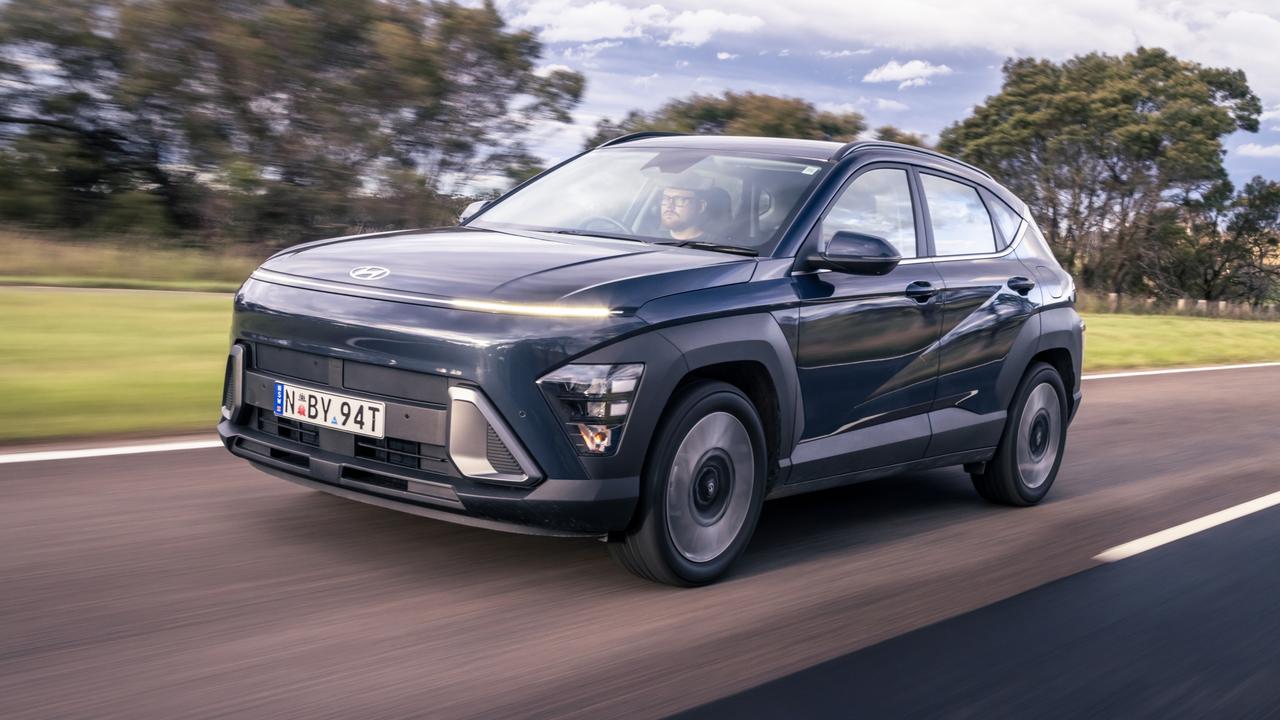
Hyundai has one of Australia’s largest EV portfolios with its Ioniq 5, Ioniq 6 and Kona Electric models. But its EV sales are dwarfed by the number of petrol and diesel cars it delivers, something that would be problematic with new efficiency standards.
“In the EV segment, obviously Tesla and BYD have dominated,” Kett said. “We’ve got probably one of the broadest EV ranges, but haven’t been able to get scale in those segments; some of that’s been around supply.
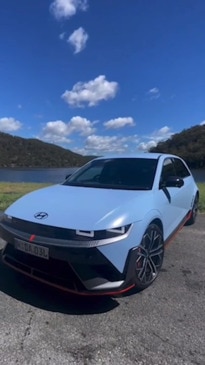
Last year Tesla sold 28,769 Model Ys, 17,347 Model 3s, while third place BYD Atto 3 registered 11,042 sales. Hyundai’s best-selling EV, the Ioniq 5, found only 947 new owners.
More hybrids shifted will be key for Hyundai. Some 40 per cent of Kona sales are hybrid, and it hopes to do a similar percentage with the new i30 sedan. This may prove conservative. Four out of every five Corollas sold are hybrid.
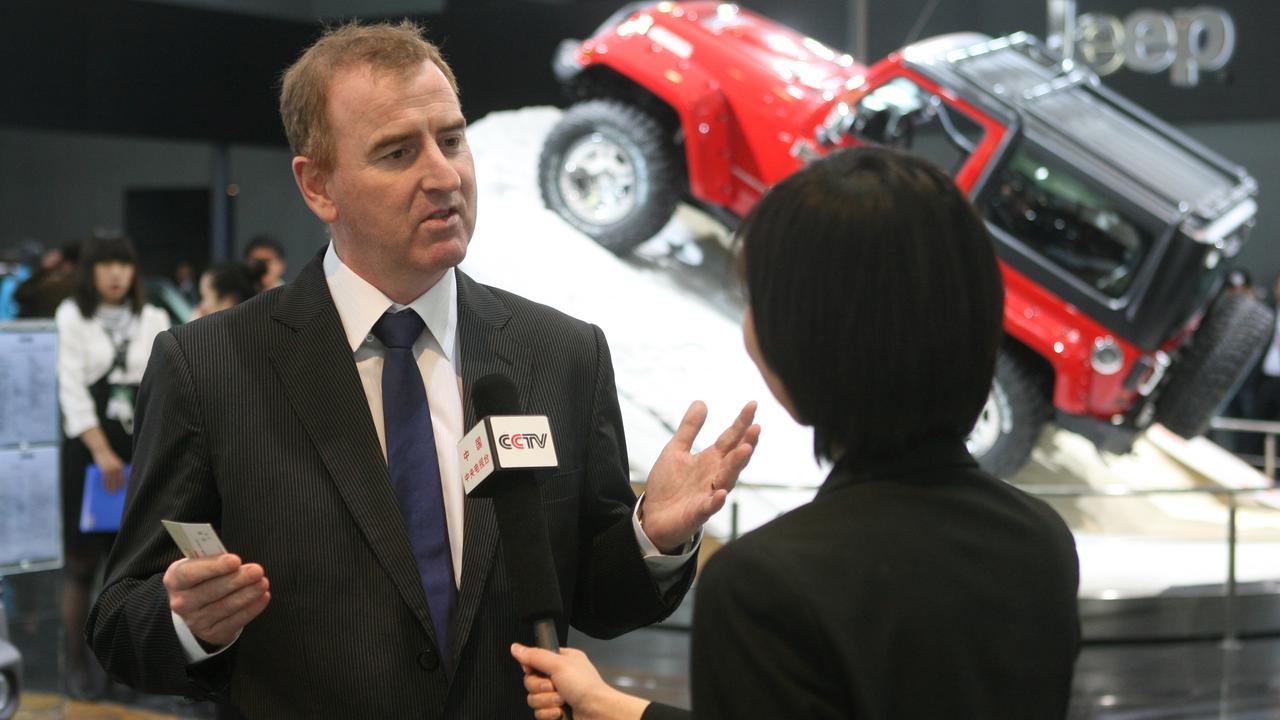
A petrol-only i30 sedan is $4000 cheaper to drive-away than the hybrid, but uses 6.1L/100km overall, and 8.5L/100km in town. The latter slurps just 3.9L/100km and 2.8L/100km respectively – potentially massive fuel savings.
Australians are hungry for more affordable fuel miser hybrids, and until now only the Toyota Corolla fitted the bill. Honda has its hybrid Civic hatchback, but comes only in high-spec LX grade for $55,000 drive-away.
The Hyundai i30 sedan a welcome new hybrid player, with the introductory single variant grade being joined by better equipped Elite and Premium versions by mid-year.
How much of a dent they can make in the all-conquering Corolla sedan’s sales remains to be seen.



